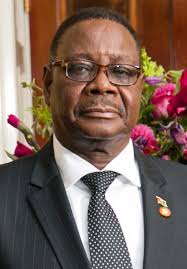In recent years, the Southern African Development Community (SADC) has witnessed a curious trend: former presidents making bids for a return to power after their terms have ended.
The phenomenon reflects a complex interplay of political aspirations, public support and, at times, desperation to reclaim lost influence.
Notable figures in this resurgence include Jacob Zuma of South Africa, Ian Khama of Botswana, Edgar Lungu of Zambia, and now Malawi’s Peter Mutharika who was recently chosen to lead the Democratic Progressive Party (DPP) into next year’s presidential election.
At 84, Mutharika’s intention to re-enter the political arena has raised eyebrows.
Having served as Malawi’s president from 2014 until his defeat by Lazarus Chakwera in 2020,
Mutharika initially indicated he would not seek office again. However, buoyed by calls from his supporters who argue that he is the right man to “save the country” from the current administration, Mutharika’s change of heart is emblematic of a broader trend among former southern African leaders.
Mutharika’s 2020 loss followed a tumultuous election marred by allegations of widespread fraud.
The country’s Constitutional Court annulled the previous year’s vote, citing extensive tampering, including the notorious use of Tipp-Ex corrector fluid on ballots.
The judiciary’s courageous decision to overturn the election result earned it significant acclaim.
This week’s announcement of Mutharika as new DPP leader is expected to set the stage for a highly anticipated rematch against Chakwera in 2025.
Mutharika is not alone in his return-to-power aspirations.
Former South African president Jacob Zuma has made headlines with his attempts to regain power by forming uMkhonto weSizwe (MK), a party made up of disgruntled members of the African National Congress (ANC).
His comeback bid was, however, curtailed by legal hurdles that saw him disqualified from contesting for the presidency in polls held in May this year.
Despite facing a corruption trial, Zuma’s influence remains potent, illustrating a persistent demand for his leadership among segments of South African society.
The MK emerged as the third largest party in the country after winning more than 14 percent of the ballots in the May poll.
Similarly, Ian Khama, who served as Botswana’s president from 2008 to 2018, has hinted at a political comeback after distancing himself from his successor, Mokgweetsi Masisi.
His criticism of Masisi’s leadership has resonated with a faction of the Botswana Democratic Party, re-igniting discussions around his potential return.
The former Botswana leader has been living in self-imposed exile for the past few years and accuses Masisi’s government of persecuting him.
Edgar Lungu, who led Zambia from 2015 until his defeat in 2021, is also positioning himself for a political resurgence.
Despite facing criticism for his administration’s handling of the economy, Lungu’s recent actions signal his intent to re-enter the political fray, fuelled by a loyal Patriotic Front voter base still yearning for his leadership.
The trend of former presidents seeking to regain power highlights a broader challenge within southern African – and indeed African – politics.
While these leaders often enjoy a solid support base – Mutharika, for example, asserts he can “remove an incompetent government” – critics argue that it is time for younger, more dynamic leaders to emerge.
Mutharika’s rival, Chakwera, is just 69 and has faced pressure from voters frustrated by his administration’s struggle to fulfil promises, including job creation and tackling corruption.
With political landscapes constantly shifting and the aspirations of citizens evolving, it remains to be seen whether these former presidents can effectively leverage their experience to reclaim influence or if the calls for new leadership will prevail.
As the public reflects on past administrations, it is clear that the political narratives in SADC are still being written, with former leaders eager to play a role in shaping their countries’ futures once again.
JN/APA


